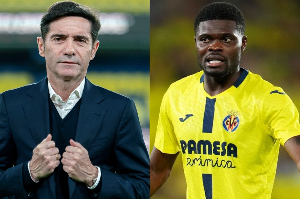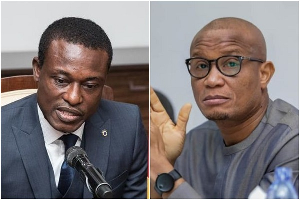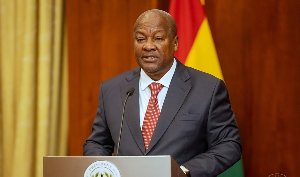Africa Business News of Monday, 17 February 2020
Source: nation.co.ke
5G mobile network boosts Kenya's opportunities
Chinese technology giants Huawei and Zhongxing Telecommunications Equipment Corporation (ZTE) have expanded to become the bloodstream of Africa's telecoms infrastructure, and they are not slowing down despite the United States of America placing restrictions on their investment prospects.
On Wednesday last week, the European Union (EU) Network Information Security Cooperation Group released a toolbox of recommended measures to mitigate security risks in 5G networks, effectively putting a caveat on the two firms.
But even as Washington whips its allies into isolating Huawei in Kenya and a host of other African countries, the firm and its Chinese competitors are embraced as they rollout key innovations, modernising the continent’s infrastructure with the financial backing of Beijing.
South Africa, Egypt and Uganda that have in the last three months launched 5G networks have used Huawei’s technology to achieve this feat, with Kenya now expected to be the fourth African country to benefit from this Chinese technology.
KONZA CITY
Kenya’s leading telecommunication firm Safaricom is expected to launch its 5G later this month, with the initial phase in parts of Nairobi, after successful tests in the capital city last year; Huawei is its lead partner.
Huawei has also beat its rivals in the Kenyan market with its Mate 30, and Chinese Xiaomi Redme K30 being the only devices that are 5G-ready.
Huawei has also in the last five years done several infrastructure projects for the Kenyan government, with its latest being the Sh17.5 million deal with China for the Konza data centre.
The State also uses Huawei security equipment procured in 2017, which included six eNodeB Stations, 150 Radio Trunking Terminals and a Radio Trunking System Core Network and Dispatch System for the police service.
The country also got Huawei to develop its Government Cloud Services Project.
RESTRICTIONS
In the European meet last week, the toolbox released acknowledged that suppliers with high-risk profiles (companies based in third world countries that lack democratic checks and balances) should face additional restrictions.
The tool kit also called on EU member states to exclude high-risk suppliers from critical and sensitive parts of their 5G networks, which includes the Radio Access Network.
This is a big win for the US, which has accused Huawei of spying on behalf of China.
Outside phone usage, the development and infusion of the 5G networks will touch every aspect of our lives, including electrical grids, autonomous vehicles, smart manufacturing, medical treatments, and personal data, raising the stakes on how technology will affect our day to day lives.
US Secretary of State Mike Pompeo on Wednesday said that given that 5G will support other vital applications, all parts of future 5G networks should be considered critical infrastructure and each country should have measures in place to protect the safety, security, and privacy of citizens who rely on them.
AFRICA UNDAUNTED
Washington has already taken steps to secure its own 5G networks by prohibiting untrusted suppliers, such as Huawei and ZTE, which are subject to the direction of the Chinese Communist Party.
“Our actions are in line with the EU’s assessment that 5G suppliers headquartered in countries without democratic checks and balances may pose an unacceptable security risk,” Mr Pompeo said.
African countries have seen these two manufacturers establish more than 50 third-generation telecoms networks in more than 36 nations and built national fibre optic communications networks and e-government networks for more than 30 African countries.
For African governments, getting technology upgrade from the previous SPRS to 4G and even talks of 5G in the offing clearly seems to be a better deal, making them turn a blind eye to the data and security concerns that currently dodge the two technologies.
“So far, we have signed 22 commercial contracts for 5G, and we are working with over 50 carriers on 5G commercial tests,” said Ryan Ding, President of Huawei's Carrier Business Group.
REDUCING COST
Huawei is China's largest telecoms equipment-maker and network solutions provider and the third-largest in the world, while State-owned ZTE comes second within the Chinese market, and fifth largest in the world.
They have both seen their Africa revenues rise, accounting for almost a fifth of their overall income.
“We don’t expect that African governments will bow to US pressure to keep Huawei out of any potential 5G roll-outs or 4G network upgrades. Most African operators are keen to slash costs where possible for 5G, and one area is to adopt cost-effective Chinese telecoms equipment,” said Kenny Liew telecommunications analysts at Fitch Solutions told CNBC in December.












